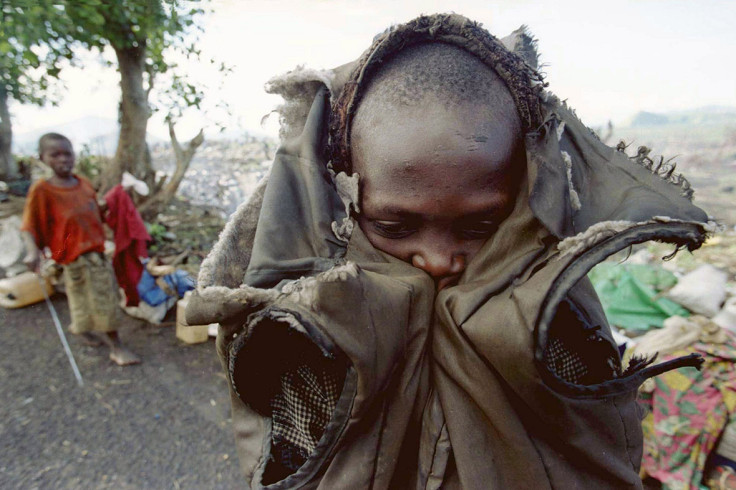Spy chief Karenzi Karake arrest based on 'genocide lunacy' says Rwanda government

The Rwandan government has reacted with outrage to the arrest of the country's intelligence chief in London.
General Karenzi Karake, a member of paramilitary organisation and now Rwanda's ruling party Rwandan Patriotic Front (RPF), was arrested at Heathrow Airport on Saturday (20 June) and is to appear before Westminster magistrates' court on 25 June.
Rwanda's Minister of Foreign Affairs and Cooperation Louise Mushikiwabo wrote on Twitter that the arrest was outrageous and it was based on propaganda about genocide.
Western solidarity in demeaning Africans is unacceptable!! It is an outrage to arrest #Rwanda-n official based on pro-genocidaires lunacy!
— Louise Mushikiwabo (@LMushikiwabo) June 23, 2015The U.N in 2009 amply documented support of Spanish NGOs behind the preposterous "valid European arrest warrant" to genocidal militia FDLR!
— Louise Mushikiwabo (@LMushikiwabo) June 23, 2015Williams Nkurunziza, Rwanda's High Commissioner to the UK, said the arrest was "an insult".
"We take strong exception to the suggestion that he's being arrested on war crimes," he told the BBC.
"Any suggestion that any of our 40 leaders are guilty of crimes against humanity is an insult to our collective conscience."
Justice Minister Johnston Busingye was quoted by the New Times newspaper as saying: "We will contest in the courts. We have sought explanation from the UK on this matter as well."
IBTImes UK tried to contacted the RPF, but has not received a response at the time of publishing.
British Conservative Party politician Andrew Mitchell said that the arrest was politically motivated. He told IBTimes UK: "His arrest warrant has been widely discredited not least by American officials who described it as unresearched, politically motivated and lacking in factual accuracy."
The Rwandan community informed London's police
UK-based human rights activist and politician Rene Claudel Mugenzi told IBTimes UK: "It's very important that the UK is following the European arrest warrant. This guy has been here [the UK] many times and was not arrested. But this time the Rwandan community were involved in informing the police.
"We are happy that it happened, we are hoping that justice will be done for victims. I disagree with Mitchell as the arrest is not politically motivated.
"This is just propaganda. The same used by the Rwandan government against anyone who criticises it.
Mugenzi – whom the Rwandan government plotted to assasinate in 2011 according to Scotland Yard – added that there have been several reports detailing the human rights abuses allegedly committed by Karake and the Rwandan government.
"The UN has not done anything about it. We are hoping that it will do something. For example, refer the case to the International Criminal Court (ICC) or other special courts, as the ICTR [International Criminal Tribunal for Rwanda] is not doing very good. It's closing down."
Rwanda genocide
Tensions between Hutu and Tutsi ethnic groups started with the Belgian colonisation in 1922. The colonisers supported the Tutsi political power and exacerbated ethnic differences between Hutu and Tutsi by introducing the compulsory use of identity cards.
After a Hutu revolution led to the 1962 declaration of independence and the establishment of the Rwandan republic, led by the MDR-Parmehutu, the country was rocked by sporadic violence between the Hutu government and Tutsi rebels.
In 1990 the Rwanda Patriotic Front (RPF) invaded the country, starting the Rwandan civil war.
The conflict lasted until 1994, when the genocide against the Tutsi was sparked after suspicions spread that the Tutsi had carried out an attack against Hutu President Juvénal Habyarimana, who died together with Burundi's President Cyprien Ntaryamira in a plane crash on 6 April 1994.
It is estimated that 1 million people, mainly Tutsis and moderate Hutus, were killed in three months from 6 April to 15 July 1994.

© Copyright IBTimes 2025. All rights reserved.




















